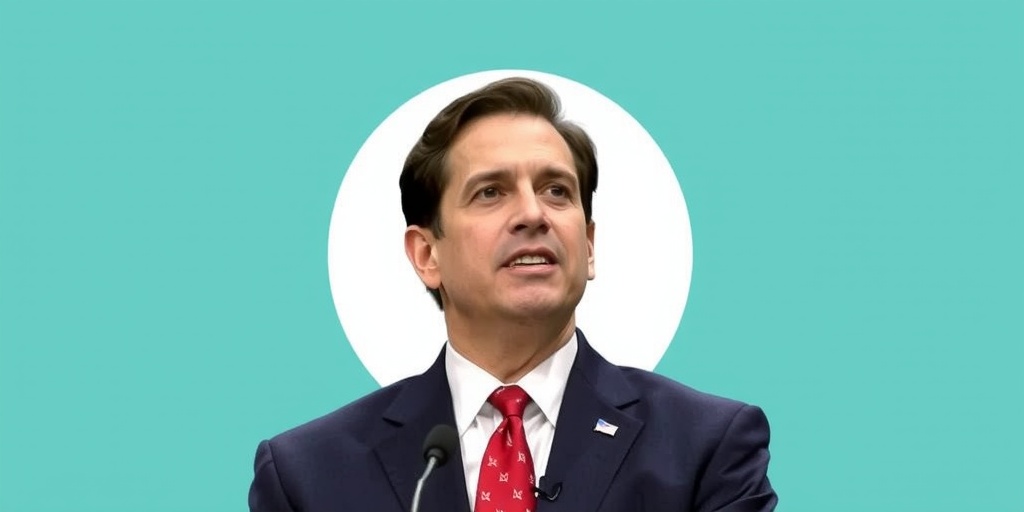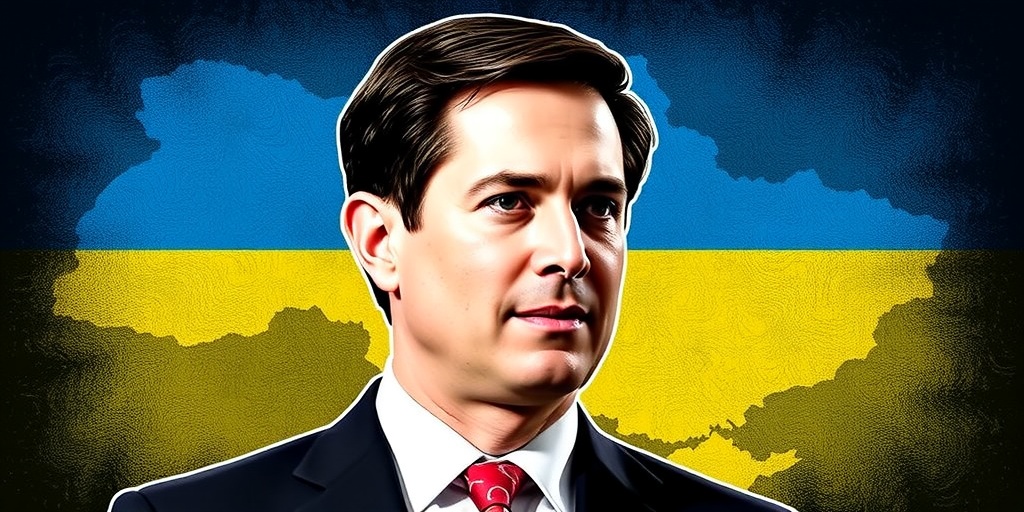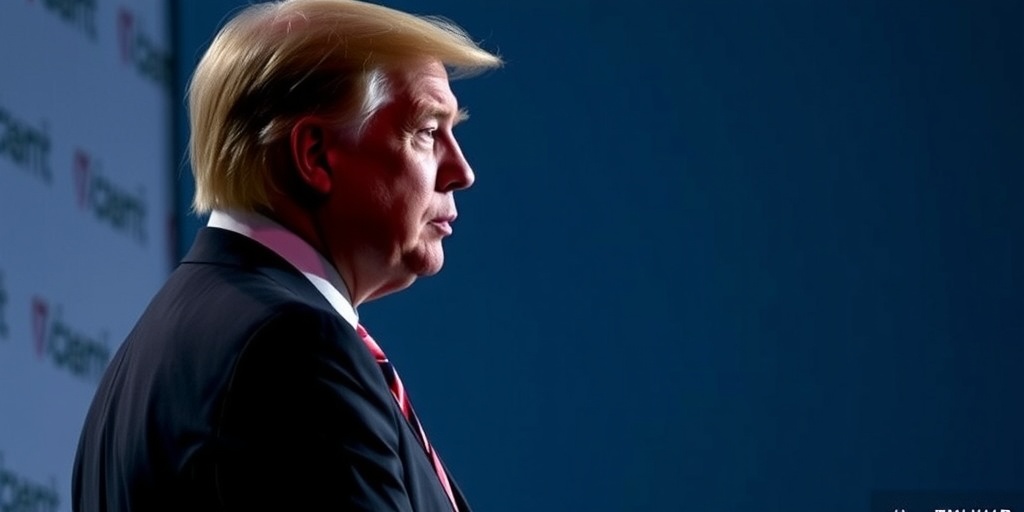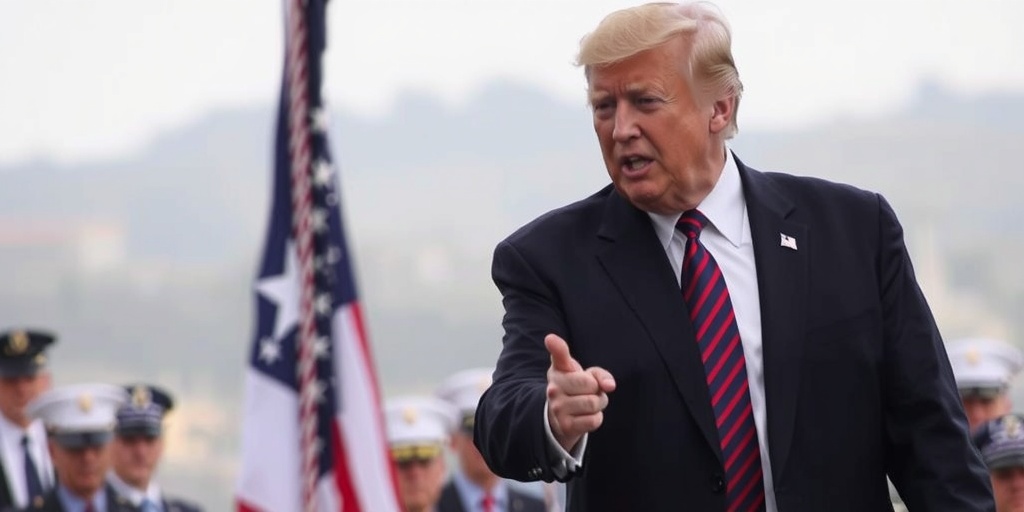Now Reading: Key Insights from Marco Rubio’s Senate Hearing
-
01
Key Insights from Marco Rubio’s Senate Hearing
Key Insights from Marco Rubio’s Senate Hearing

Marco Rubio’s Confirmation Hearing Highlights Bipartisan Support and Foreign Policy Challenges
Florida Senator Marco Rubio, nominated by former President Donald Trump to serve as the next Secretary of State, received a strong endorsement during his confirmation hearing on Wednesday. Engaging with senators from both political parties, Rubio’s extensive experience—having served on the Senate Foreign Relations and Intelligence Committees—positions him as a well-qualified candidate for the role.
In a collaborative atmosphere, Senator Jeanne Shaheen, a Democrat from New Hampshire, expressed confidence in Rubio’s qualifications, stating, “I believe you have the skills and are well qualified to serve as secretary of state.” This kind of bipartisan support set the tone for what was expected to be a smooth confirmation process for Rubio, particularly given the absence of significant tension during the hearing.
The flurry of questions from the assembled senators outlined their collective expectations for Rubio’s approach to foreign policy, particularly concerning major global challenges posed by countries like China, Russia, North Korea, and Iran. This “axis” of nations was explicitly identified by Rubio during his opening remarks, reflecting a consensus among U.S. lawmakers regarding the pressing geopolitical issues at hand.
Rubio articulated a keen awareness of the threats posed by these nations, describing them as entities that “sow chaos and instability” and align with radical terror groups, all while utilizing their veto power at the United Nations to shield their actions. With a pointed focus on the Chinese Communist Party, Rubio diverged from Trump’s occasional overtures to autocratic leaders, instead opting for a clear stance against their actions.
The hearing also addressed the ongoing conflict in Ukraine, a crisis that has drawn significant U.S. attention and resources. Rubio conveyed a commitment to ending the war instigated by Russian President Vladimir Putin, emphasizing that both Kyiv and Moscow would need to make difficult concessions to achieve peace. He mentioned that U.S. intelligence reported Russia’s reliance on North Korea for troops and arms, Iran for military support, and China for rebuilding its defense capabilities, underscoring the complex interrelations among these adversarial nations.
In another critical area of foreign policy, Rubio’s stance on Israel and the situation in Gaza also emerged as a focal point. Defending Israel’s actions during its conflict with Hamas, Rubio attributed the humanitarian toll in Gaza to Hamas’s tactics of using civilians as human shields. He succinctly asserted that Israel cannot coexist with armed groups that actively seek to undermine its existence, reinforcing a familiar narrative in Washington’s foreign policy circles.
When pressed on the contentious issue of Israel potentially annexing Palestinian territory, Rubio refrained from a straightforward answer, labeling it a “very complex issue.” In the midst of the hearing, news broke that Israel and Hamas had reached a temporary cease-fire agreement, adding a layer of immediacy to the discussion.
Rubio’s hearing also included a reaffirmation of U.S. commitments to international alliances, notably the North Atlantic Treaty Organization (NATO). He branded NATO as “a very important alliance,” countering Trump’s repeated critiques. While supporting the idea that Europe ought to contribute more to its own defense, Rubio passionately argued against any notion of abandoning NATO or diluting the U.S. commitment to the alliance.
Reaffirming his legislative efforts, Rubio reminded senators of his prior work creating rules to prevent a president from unilaterally withdrawing from NATO, emphasizing the importance of maintaining American alliances in a changing global landscape.
Despite receiving praise from many of his Senate colleagues, Rubio does face skepticism from some factions within the Republican Party. Notably, hardline Trump supporters have not forgotten his vote to certify the 2020 election results, an act that put him at odds with the former president’s claims of electoral fraud. Additionally, Rubio’s foreign policy record, often viewed as interventionist, contrasts sharply with the more isolationist tendencies espoused by some constituents, including prominent figures such as Senator Rand Paul of Kentucky.
During the hearing, Paul openly questioned Rubio’s approach to China, asking whether collaboration could be a feasible option rather than a continued confrontational stance, highlighting the divisions within the GOP on foreign policy ideologies. Ultimately, Rubio’s confirmation hearing encapsulates a pivotal moment, reflecting both the challenges ahead for U.S. foreign policy and the ongoing dialogue among lawmakers as they navigate complex global dynamics. The outcome of his nomination seems likely to favor swift confirmation, given the bipartisan support evident during the session.
Stay Informed With the Latest & Most Important News
Previous Post
Next Post
-
 01New technology breakthrough has everyone talking right now
01New technology breakthrough has everyone talking right now -
 02Unbelievable life hack everyone needs to try today
02Unbelievable life hack everyone needs to try today -
 03Fascinating discovery found buried deep beneath the ocean
03Fascinating discovery found buried deep beneath the ocean -
 04Man invents genius device that solves everyday problems
04Man invents genius device that solves everyday problems -
 05Shocking discovery that changes what we know forever
05Shocking discovery that changes what we know forever -
 06Internet goes wild over celebrity’s unexpected fashion choice
06Internet goes wild over celebrity’s unexpected fashion choice -
 07Rare animal sighting stuns scientists and wildlife lovers
07Rare animal sighting stuns scientists and wildlife lovers





















